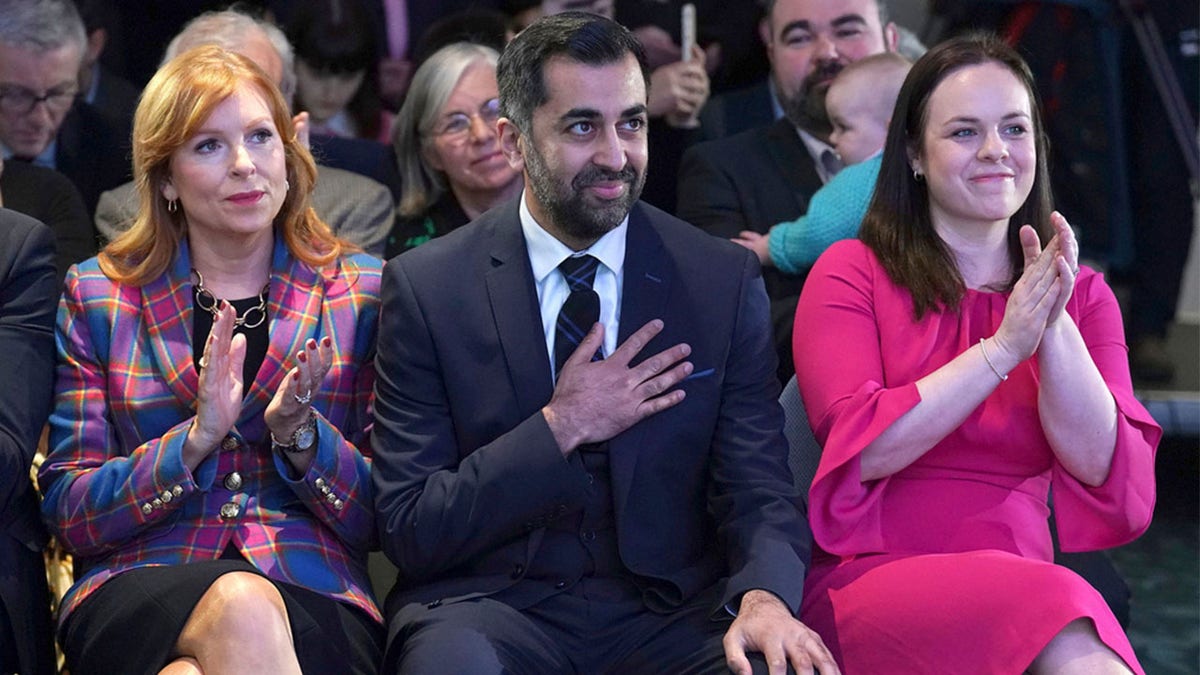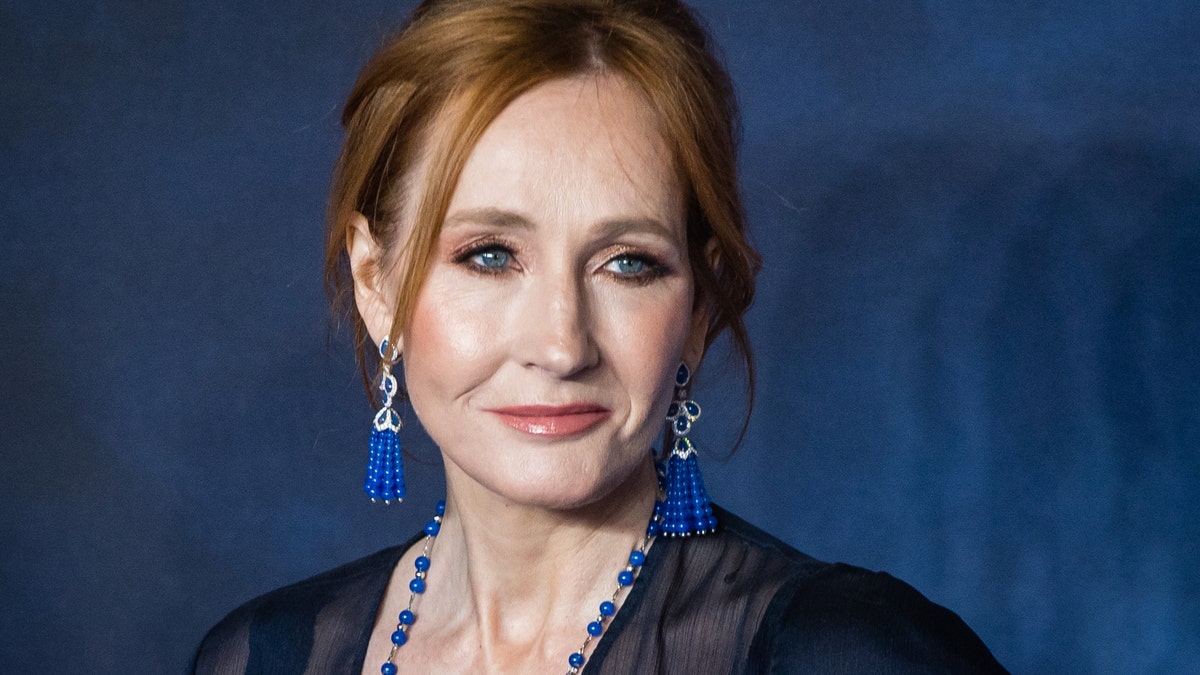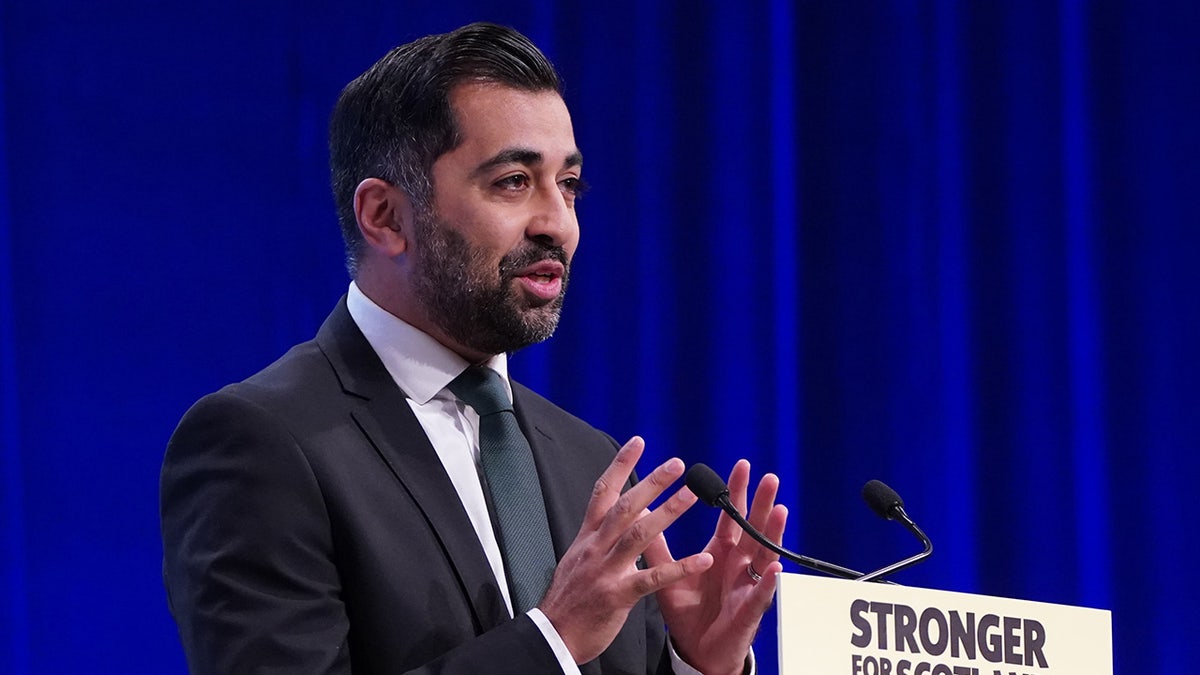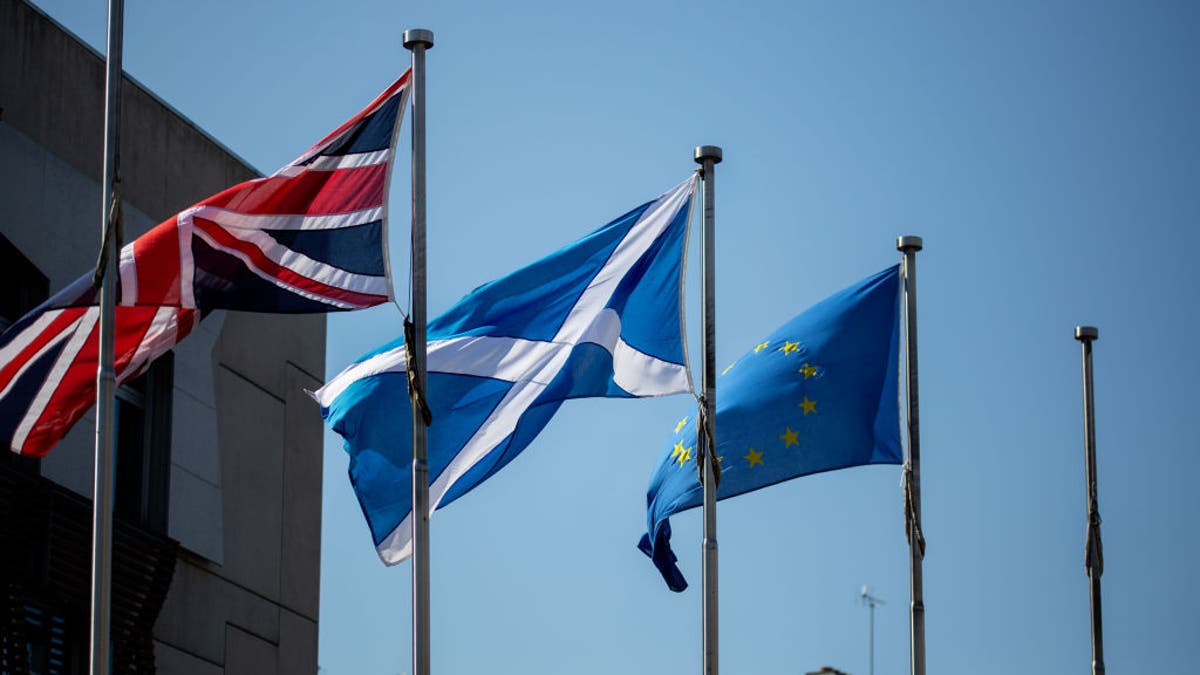Harvard student calls out double standard regarding antisemitic hate speech on campus
Jacob Miller, a Jewish student at Harvard University, joins 'America Reports' to weigh in on Claudine Gay's resignation, which he argues was a result of both the recent plagiarism allegations and her comments on campus antisemitism.
Scotland’s controversial new hate speech law went into effect Monday despite fierce backlash from critics.
"Scotland continues to infringe upon the right of her citizens to speak freely. This bill will force police to investigate those who ‘misgender’ someone online," Thomas Corbett-Dillon, a former adviser to Prime Minister Boris Johnson, told Fox News Digital. "In a country riddled by knife crime, and with one of the lowest life expectancies in Europe, you would think the Scottish Government has more important things to focus on, but no, they are desperate to pander to an extremely small group of men in dresses who feel offended when they are not referred to as women."
The comments come as Scotland officially announced that its hate crime law aimed at providing "greater protection for victims and communities" came into force Monday, creating new criminal offenses for those who use "threatening or abusive" behavior intended to "stir up hatred based on prejudice toward characteristics including age, disability, religion, sexual orientation, transgender identity and variations in sex characteristics," according to a press release by the Scottish government.
The new law warns that people can be prosecuted for sharing offensive rhetoric across multiple media platforms, which includes "displaying, publishing or distributing the material e.g. on a sign; on the internet through websites, blogs, podcasts, social media etc., either directly, or by forwarding or repeating material that originates from a third party; through printed media such as magazine publications or leaflets, etc. Giving, sending, showing or playing the material to another person e.g. through online streaming, by email, playing a video, through public performance of a play, etc."
SCOTLAND TO LAUNCH NEW HATE SPEECH LAW ON APRIL FOOL’S DAY THAT WILL JAIL PEOPLE FOR UP TO 7 YEARS

Scottish National Party leader candidates Ash Regan, left, and Kate Forbes applaud as Humza Yousaf, center, is announced new SNP leader, at Murrayfield Stadium, in Edinburgh, Monday, March 27, 2023. (Andrew Milligan/PA via AP)
People convicted of running afoul of the new laws could face fines and even a prison sentence of up to seven years, with proponents arguing the legislation will send "a strong and clear message to victims, perpetrators, communities and to wider society that offences motivated by prejudice will be treated seriously and will not be tolerated."
But the legislation has also been widely panned by critics, with renowned author J.K. Rowling describing the law as "ludicrous" in social media posts last month.
"If you genuinely imagine I’d delete posts calling a man a man, so as not to be prosecuted under this ludicrous law, stand by for the mother of all April Fools’ jokes," Rowling, a frequent critic of transgender ideology, said on X.
Corbett-Dillon pointed to Rowling, noting that the Harry Potter author could be one of those targeted under the new legislation.

J.K Rowling attends the U.K. premiere of "Fantastic Beasts: The Crimes Of Grindelwald" at Cineworld Leicester Square on Nov. 13, 2018, in London. (Samir Hussein/WireImage)
BBC DISCIPLINES TOP RADIO HOST FOR CALLING TRANS WOMEN MALE DURING RADIO SHOW
"This law could lead to renowned Harry Potter author J.K. Rowling being arrested because she refuses to call trans people ‘She’ online. This new law does nothing to protect women, or to stop men from entering into female sports competitions, or men entering into women’s bathrooms," Corbet-Dillon said. "Trans people have become a ‘protected community’ in Scotland, but women remain unprotected."
The Scottish government has defended the law, with Minister for Victims and Community Safety Siobhian Brown arguing that the country is "building safer communities that live free from hatred and prejudice."
"We know that the impact on those on the receiving end of physical, verbal or online attacks can be traumatic and life-changing. This legislation is an essential element of our wider approach to tackling that harm," Brown said in the release.
Brown also argued that there were protections for free speech built into the legislation, noting the new offenses would have a "higher threshold for criminality" than old laws that have been in place since 1986.

Scottish First Minister Humza Yousaf during his speech during the SNP annual conference in Aberdeen, Oct. 17, 2023. (Andrew Milligan/PA Images via Getty Images)
CLICK HERE TO GET THE FOX NEWS APP
But critics have still questioned those protections, with Faculty of Advocates’ Criminal Bar Association President Tony Lenehan worrying that the law could target journalists, comedians, debaters and dramatists, in comments to BBC last month.
Those claims were pushed back on by Scotland’s national police, who denied that the agency would proactively "target actors, comedians, or any other people or groups."

The British Union flag, also known as the Union Jack, left, the saltire, the national flag of Scotland, center, and the flag of the European Union, right, outside the Scottish Parliament building, Edinburgh, U.K., on Sunday, April 25, 2021. Photographer: Emily Macinnes/Bloomberg via Getty Images
Nevertheless, Corbet-Dillon argued that the Scottish government should instead focus its attention on protecting free speech.
"The trans community continue to destroy women’s rights in their desperate pursuit to receive affirmation of their gender delusions," Corbet-Dillon said. "Scotland, and England, both urgently need to enshrine freedom of speech into their laws."
